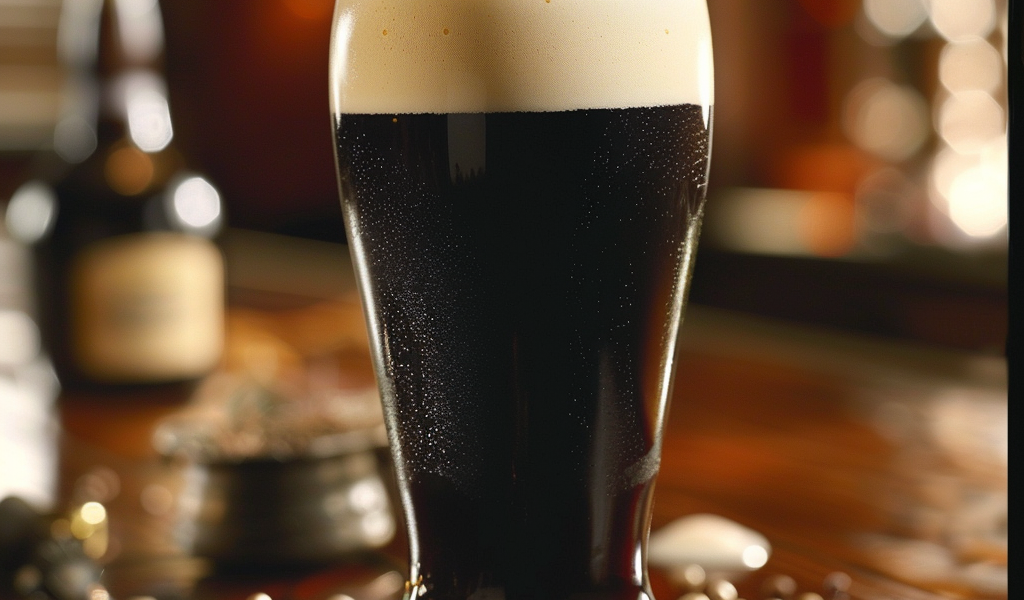On St Patrick’s Day, our writer explains her lifelong love of Guinness – not least for its gut health benefits.
Marie O’Riordan was raised on the black stuff in 1970s Dublin and swears by it to this day. She credits her parents with her love of Guinness, now Britain’s top selling pint and consumed by one in nine beer drinkers. She is the third of a seven-child family and remembers her mum drinking a single GP-prescribed bottle of Guinness a day while pregnant with her younger siblings, claiming it was for the iron content.
Years later, a tale spread across the city that the brewery had mistaken their decimal points and the much-lauded iron content of a Guinness pint was in fact only 0.3mg and not the 3mg promised to women in the family way. That means there’s as much iron in a single egg as there is in three pints of Guinness. At the same time, her father used to boast about the free pint of Guinness he’d be given in exchange for the pint of blood he regularly donated. On her graduation day in Dublin, he even took her on a tour of the award-winning Guinness Storehouse as part of their celebration.
Rhiannon Lambert, one of the UK’s leading nutritionists, highlights the possible benefits of choosing Guinness instead of alternative alcohol drinks: “Guinness contains antioxidants up to twice the amount of other beers, particularly flavonoids, associated with a reduced risk in chronic diseases such as cardiovascular and some cancers. There are nutritional benefits in most beers – including B vitamins, fibre, and prebiotics that promote the growth of ‘good’ bacteria in your gut – and Guinness offers more of these. Since it contains unmalted barley, it is also one of the beers with the highest levels of fibre.”
The science appears to be reflected in today’s drinking trend for low or zero alcohol drinks. The viral images of Kim Kardashian sipping a pint on Paddy’s Day last year have assured the abundance of hashtags including #GuinnessGirls is here to stay. But it’s not just glamour by association. According to Lambert, conditions such as osteoporosis could possibly be counteracted with safe Guinness drinking: “A study conducted in 2009 found a positive connection between the silicon in stout and bone health. However, there are obviously healthier alternatives to obtain your broader range of nutrients such as vegetables, fruit an





